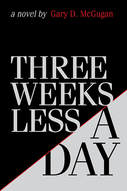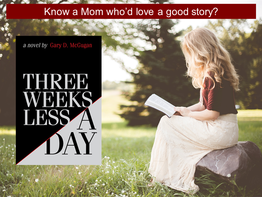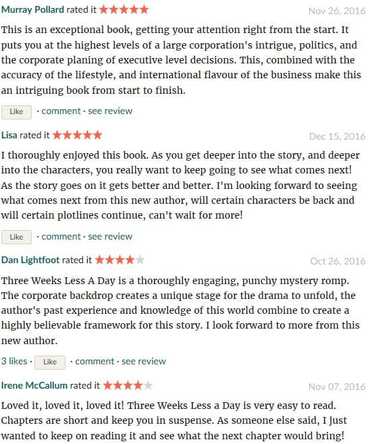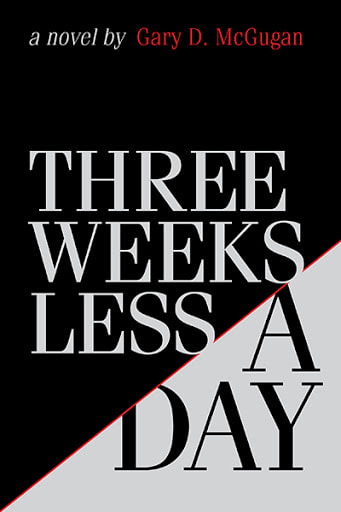 It’s been over three months since my last blog communication. Apologies, faithful followers! It won’t happen again. But here’s where we are with preparation for Novel Number 2. I always try to craft a good story that readers will enjoy. My methods may differ from other authors because I actively seek and welcome input. During August, I asked two professional editors to meticulously review the latest manuscript of my second novel and suggest ways to improve the final product. I also asked six readers whose judgment I value – male and female, young and not so young – to swear confidentiality and read the manuscript. From them too, I encouraged feedback and critical input. Despite my best efforts to provide these people a clean, well-written, and error-free manuscript, they’ve managed to identify lots of little issues that I, Word spellcheck, and Grammarly all missed. They also offered some good suggestions about ways to thicken the plot or improve the storyline. Some wondered if I went a little heavy on sex. Others simply loved the story without changing a thing. I take all feedback very seriously, so for the next few weeks I was busy touching up typos, spelling, and grammar. Then, I read every word from cover to cover again – six times in all -- considering each suggestion for improvement. With each reading I re-wrote or tweaked passages to incorporate ideas I decided work well for this novel. Since November, I’ve been negotiating with publishers. I’ll be changing publishers for this book because I’m determined to work with one who will offer more competitive pricing. Within a few days, I’ll make an announcement. In the meantime, I value your support to boost sales of Three Weeks Less a Day. Reviews are especially useful. It seems with almost every new review on Amazon, GoodReads, Indigo, or any of the online book retailers we see a few more sales. If you can make a few moments to post a review, I’ll be grateful. Please also share this post with your friends so they can keep pace with progress on the coming story. And be sure to let them know they’ll find the new novel even more enjoyable if they’ve read Three Weeks Less a Day. I can tell you some of the characters you enjoyed in that story will play even more exciting roles in the story to come!
0 Comments
 Some of you have been wondering what I’ve been up to since release of Three Weeks Less a Day. Regular followers know that we had a surge of promotional activity immediately after publishing the novel, then some publicity and signings in Florida. In Spring, I built some selling momentum around Mother’s and Father’s Day advertising. Next, I’ll be arranging some book signings and publicity for the autumn book selling season. I value your support to help spread the word about Three Weeks a Day. And, I particularly appreciate all who have made time to rate and review the book on Amazon, GoodReads, and other popular sites. Thank you! Throughout these promotional activities, I’ve also been hard at work on a second novel! Many of you know I don’t like questions about a book while I’m writing, and I especially appreciate those who don’t ask “how’s it coming?” But I can share a bit. Progress has picked up significantly since I’m back in Canada. Over the past sixty days, I’ve managed to expand the output to more than 235 pages and read, edited and improved the entire work twice. My target is to complete an acceptable first draft by early August. Then, I’ll be asking professional editors and a few ‘beta’ readers to review the manuscript. I’ll be looking for their critical impressions of the early work and, by September, I should have an idea how much additional work will be needed. I can tell you this. I’m really enjoying the story so far. If you enjoyed reading Three Weeks Less a Day, I think you’ll love this new story even more! Still untitled, my new novel involves a few characters working at Multima Corporation and several new ones. The story takes place across North, South and Central America. It will again be quick-paced -- with short chapters, short paragraphs and short sentences. There will be more action and more mystery. And, that’s all I’m willing to share right now! Thanks again for all your help to make family and friends aware of Three Weeks Less a Day! I couldn’t do it without your support. If you haven’t yet ordered your personal copy, now is good time. It’s also a great time to remind your friends they’ll want to learn all about the fascinating characters of Multima Corporation before the new story is released early next year! Books  Despite many good wishes, flowers, and thoughtful gifts from your family for Mother’s Day, I expect some of you may still be a little disappointed today. Despite all your helpful hints, my Facebook promotion, and positive reviews everywhere, you didn’t find a personal copy of “Three Weeks Less a Day” among the generous bounty you received! It seems you now have only a limited number of options available. The first option is to do nothing. Just wait and hope family or friends will buy a copy for you on an upcoming birthday, holiday or some other special occasion at some time in the future. Another option? Purchase a copy of “Three Weeks Less a Day” for your significant other for Father’s Day! Once you give him a copy, it would surely be easy to ‘borrow’ and read for yourself. And if you order it quickly, you’d still know you’re not only giving a great gift both will appreciate, you’ll also know all royalties for purchases in May still go to Cancer Societies. The third option – and my preferred course of action – is simply to get out your favorite credit card and order a copy for yourself from one of the many online retailers who can deliver a copy within just a few days! That way, you can be immersed in this great story quickly! To help you with this third option, here’s a useful link to several of those retailers. Enjoy! Books  It’s true. I’m donating all royalties I receive from sales of Three Weeks Less a Day during April and May 2017 to cancer research in the USA and Canada. Why? One reason is to promote my novel. As a new author, I always look for ways to encourage people to talk about and buy my book. More importantly, I want not only to entertain readers, I also want to encourage people to think about cancer. As explained in the first Rendezvous blog, (http://www.garydmcguganbooks.com/rendezvous-blog/john-george-mortimer-has-breast-cancer), I want fictional character John George Mortimer to increase awareness about breast cancer and shine a light on a reality that men, too, can be afflicted with this insidious disease. If promoting Three Weeks Less a Day can help people think about cancer, that’s a good thing. We should all examine our bodies and get unusual changes checked out. We should all think about our lifestyle choices and things we consume. And, we should all do our best to finance research towards a cure for all cancers. Promoting my novel helps readers be more aware of cancer while they enjoy a good story. We all win! But I know skeptics might wonder if royalties I receive when people buy books during April and May will actually end up with the American and Canadian Cancer Societies as advertised. For any who doubt, let me assure every dollar will be donated. I’ve already made a donation of $500.00 to each Cancer Society in advance. When I receive my actual sales results for April and May, I’ll cheerfully remit whatever amount exceeds the $1000.00 already donated. I hope you’ll share this message with your family and friends. Three Weeks Less a Day is a really entertaining story (check out the reviews!). It makes a great gift for upcoming Mother’s and Father’s Days too. Encourage your friends to order copies now. They’ll improve awareness while they help fund cancer research and enjoy an exciting story of corporate intrigue! Click here to link with retailers: http://www.garydmcguganbooks.com/books.html  Tucked away in a “Three Weeks Less a Day” passage where I tell some fictional background history about my main character, John George Mortimer, readers might detect my passion for critical thinking skills. It’s a passion I developed early in my business career and one that intensifies today. Last week, in a blog about social media (http://www.garydmcguganbooks.com/rendezvous-blog/it-depends-on-us), I wrote about the emphasis educators and governments in Finland place on critical thinking skills to fend off continuous, malicious Russian disinformation campaigns. It’s important for us, too. Perhaps even more crucial is the role critical thinking can play to generate greater harmony in our society, but it’s a habit many of us use all too seldom. I once asked a colleague who studied law what part of his legal training prepared him to become a successful chief executive officer. “Critical thinking skills,” he told me. “The only thing I learned at law school that helped me become a better company president was training to think about subjects from every possible perspective. That was an invaluable skill to make better decisions.” As I thought about this bit of wisdom, it occurred to me that critical thinking skills could actually make people more effective in many different ways. What if salespeople thought about their sales proposition from a potential buyer’s perspective? What if negotiators focused their energies on understanding the other side’s perspective? What if managers tried to see a subject from the point of view of their direct reports and vice versa. It turns out that people who use critical thinking skills in this way are invariably the best performers in their industries. Writing for http://learn.filtered.com/blog/6-benefits-of-critical-thinking, Kadie Regan explains, “An appreciation of differing worldviews is a direct result of learning how to empathize with other points of view. Critical thinking enables you to see beyond -- not judge -- cultural norms and learn how to understand other factors that can influence decision-making. This empathy and understanding is crucial to effective teamwork and leadership.” It’s also essential to social harmony. So, what happens if we apply critical thinking skills to some social media memes? Here’s a recent example. A dear relative by marriage recently ‘shared’ a Facebook meme that screamed “Do Not Stop Sharing This Until Every Person Who Cares About Women Sees This,” picturing a woman in traditional Muslim attire being whipped by a man. The meme was circulated about the time of International Women’s Day and included a video. Clicking on the video icon, I watched a slickly produced narrative that talked about female circumcision, child marriages, honor killings, spousal punishments and female child abuse, including murder. The production used multiple clips of human rights representatives and TV news articles to build their case. They included a couple brief clips from the UK, Canada, and the USA to justify their claims. No viewer of the video could help but be emotionally concerned about the treatment depicted and many could easily be enticed to follow the meme’s admonition to share, share, share. But it struck me odd such a video focused only on Muslim women. In fact, the subtitle on the meme exclaimed “Do you really know what is happening to women in the Muslim World?” But aren’t the tragedies of female circumcision, child marriages, honor killings, spousal punishments, female child abuse, and murder also prevalent in other societies? What about the forced child marriage problems in predominantly Christian Guatemala, a problem that even extends to immigrant Guatemalans currently living in Southwest Florida? What about the horrific rapes and treatment of girls and women in Hindu-dominated India or the senseless murders of unwanted baby girls throughout Asia. Or the plight of hundreds of unsolved killings of Canadian indigenous women? And, is human-trafficking not a deplorable crime that touches women in almost every society on Earth? Why should a video that screams “Do Not Stop Sharing This Until Every Person Who Cares About Women Sees This” talk only about negative issues framed in a context of exclusively Muslim women? And why mention such incidents for countries like the USA and Canada – where Muslim populations are tiny and occurrences so rare the researchers must have spent many hours to find one or two examples that fit their narrative? A little more research helped me to understand better. An outfit known as Israel Video Network produced the meme. Now, why would an organization from Israel create a video about Muslim women and abuse of their human rights, I wondered. A quick scroll down their site explained why. Other featured videos include titles like: “In just 50 years, if we don’t act now, Islam will take over the world”; “The Muslim Brotherhood’s plan to overthrow your country”; or this fabricated gem “You won’t believe what Germany is doing to fight Muslim migrant rape epidemic.” I stopped watching the rubbish they spewed about half-way through one titled “The fake news Nazi hunters about to abolish Canadian free speech.” I don’t think very elevated critical thinking skills were required to determine that organization is one of several groups publicizing an ongoing hurtful narrative that Muslims are not only different from us; they want us to think that Muslim people don’t belong among us. So, I started to wonder what reading such memes, and watching such videos, might mean to a Muslim man or woman living in Canada or the USA. Because the actions of violence and the Muslim practices that site described are virtually non-existent in North America, I can only imagine that most North American Muslims would just shake their heads in despair. Then I wondered what perspective a twenty-something Muslim person -- maybe one born in Canada or the USA, or one who arrived at a very early age -- might think. I suspect their reaction might represent something more than despair, something like anger or total exasperation. Many modern followers of Islam might interpret such derogatory messages as a continuing sign of unwelcome or lack of acceptance. Behavioral experts realize such rejection over time -- combined with radical enticements from thugs who want to cause harm to western societies -- find occasional fertile terrain for converts to terrorist causes. It’s a fundamental reason we have ‘home-grown’ terrorists – and home-grown terrorists have been the only perpetrators of all terrorist acts in North America in the past 15 years. From another perspective, such memes and videos perpetuate a narrative that Muslim people are not only different from us, but don’t fit our western values and societies. This dehumanizing line of thinking provides motivation for disaffected folks like the Quebec City university student who developed no apparent apprehension about shooting 14 defenseless Muslims at prayer. From every rational perspective, this sort of meme and video is harmful and led me to characterize it as ‘garbage’ and ‘trash.' One person suggested I was a little ‘harsh’ to use such terminology. With what’s at stake – tolerance of others in our community, social harmony, and even our public security -- I’ll leave it to you to decide if my comments were too harsh. Regardless, I again ask all my readers, followers, and friends to be vigilant. Look carefully at every social media meme. Take a moment to study them for truth, accuracy, and fairness before you ‘like’ or ‘share.' Think about the group targeted and try to imagine how they might perceive the message. Then do what you think is right. I hope that includes calling out such memes for what they are: intolerant, dehumanizing, demonizing, and fear-mongering, with no place in our social media conversations.  In the 2-year run-up to the last US elections, social media memes became progressively more absurd and mean-spirited. I felt concern but studiously avoided comments for either party or candidate. As a Canadian, I thought it inappropriate to comment – even though some messages were unquestionably hurtful and others clearly false. I now know I made the wrong decision. Over the past few months, we’ve learned that hateful messages can spread far beyond US borders and affect societies around the world if left unchecked. There have been recent examples of shootings of people targeted as Muslims in the USA and elsewhere. You probably heard of the tragic shooting of 14 innocent Muslims at prayer in Quebec City in January. Six hardworking, productive immigrants to Canada were killed, and eight others were seriously injured. Police quickly arrested the sole suspect in the shooting. He’s a Quebecois student, born in Canada and attending one of its best universities. His arrest concerns me, and it should concern all of us. His situation is probably complex and likely involves multiple contributing factors. We’ll learn much more over the next few years, but we should be aware of two disturbing pieces of evidence we know already. First, he recently started visiting several extremely intolerant websites that received lots of free publicity during and after the US elections. Second, his social media posts suggest he developed a great admiration for the new US president during the recent election campaign. I don’t suggest the president or his followers directly motivated his action. I do suggest the demonization and hatred towards Muslims created during the campaign -- and spread in some supporter’s Facebook messages -- probably helped one individual to rationalize that he was justified committing such a horrible crime. Repeated, hateful and intolerant messages have unleashed forces that spread far beyond American politics and are now negatively impacting thoughts -- and possibly actions -- of people around the world. Some experts believe the continuing barrage of inaccurate, intolerant, and thinly-veiled racist social media messages may be poisoning the logical thought process of a generation. We now also know that governments – Russia and possibly China – are funding and encouraging false information to sow seeds of mistrust and confusion in Western societies and even try to influence the outcome of democratic elections. In a recent Toronto Star article (https://www.thestar.com/news/world/2017/03/01/why-is-finland-better-at-fending-off-russian-linked-fake-news.html) we learn that Finland has -- for years --successfully fought Russian disinformation by constantly emphasizing critical thinking skills in their schools. The Finnish government also encourages its citizens to think logically when they encounter such messages and challenge all claims that are hurtful, inaccurate or untrue. I’ve decided to adopt the same posture with social media memes. I’ve started to confront wrong and biased messages when they appear on my Facebook feed and I’ll continue to do this. I want us all to remember that truth and accuracy is crucial in communication. I’ll also remind my friends that demonization of any person or group is wrong. Full stop. I encourage you to do the same with your social media feeds and join my personal battle for tolerance, truth, and civility. When you see a claim that seems odd, check the facts with www.snopes.com or any reputable media source that publishes a real paper newspaper. They have people and processes to check facts and sort out misinformation every day. If a meme is questionable, take time to think about it. Please don’t ‘like’ or ‘share’ it unless you are sure of the facts and are prepared to defend the statement. Otherwise, you can expect me to take you to task – challenging misinformation or biased statements. In this way, we keep our social media civil, tolerant and fair. As I pursue these goals, I’ll try to be reasonable and fair with my questions and comments. I’ve spent a lifetime making friends and building relationships, so my goal is not to embarrass or make anyone uncomfortable. But, should this quest for fairness offend you, I guess you always have an option to “unfriend” me, either on Facebook or in person. I really hope that won’t happen. It would be sad, but “c’est la vie!” To keep our social media useful, it really is up to us.  2017 is underway. For a writer, that means new resolutions on focus, productivity, and output. It also demands a reassessment of book promotion and sales activities. Like most new authors, my goal is not to become rich with a best seller. Rather, I want to write stories people read and enjoy. The target is to sell enough books to recover the expenses of creating the novel so we can write and produce more! For new writers, sales depend almost entirely on our readers and us. No matter how great a story, the harsh reality of today’s publishing business is that few are willing to risk failure. And for bookstores, the best way to avoid failure with a particular book is to avoid stocking it in the first place! So, it’s up to an author to first tell a story in a book format, then inform the media and book retailers about the novel’s merits. And the compelling way to tell that story is to share readers’ opinions. That’s where you come in! If you haven’t ordered a copy of Three Weeks Less a Day, I encourage you to read some of the reviews and order your copy here: http://www.garydmcguganbooks.com/reviews.html. If you’ve bought or received a copy already, I urge you to read it as soon as you can. You’ll find it entertaining, and you’ll finish before you realize it! If you’ve read your copy – and enjoyed it just like I promised – pass your copy on to a spouse, friend or family member so they can enjoy it too! Then, rate and review your impressions of the book on amazon.ca, amazon.com, barnesandnoble.com, chapters/indigo.com, friesenpress.com or on my website by leaving a comment at http://www.garydmcguganbooks.com/contact.html. None of these sites require you to purchase books directly from them to perform reviews, and none of these have any charge or expense for doing a review. Every time you click the number of ‘stars’ you think appropriate for “Three Weeks Less a Day” and leave a few words of opinion, you’ll encourage another potential reader to take a chance and buy a book! One last request, this message is distributed to my author page followers, and I value your support. If you can also take a moment to ‘share’ this blog post with your friends, and request them to forward it to their friends, we’ll get this message out to many more people. Thank you for all your outstanding support over the past few months, and thank you in advance for your help to spread the word about “Three Weeks Less a Day”. I truly appreciate it!  The past few weeks have been extremely gratifying! I’ve received many calls, emails, and instant messages from readers on 3 continents telling me how much they enjoyed reading Three Weeks Less a Day. As a writer, it’s very rewarding to learn that a story resonates with so many. Now, I’m asking each of you satisfied readers to take a few minutes from your busy schedules to tell other potential readers what a great story it is. Nothing influences prospective buyers of a book more than a review. With so many thousands to choose from, we all want to focus our valuable time on stories we think we might enjoy. So, most of us read and consider reviews, ratings, and opinions before we invest our money and time. Your opinion of Three Weeks Less a Day is vital and can play a significant role in any commercial success I achieve. For that reason, I ask you to go to one (or more) of the following websites and share your opinion of the novel. All sites are absolutely free. None require you to purchase a book there before commenting. Some may ask you to register with them, but all make it easy for you to avoid follow-up emails or solicitation. I’ll value whatever rating you think appropriate, and will appreciate equally a few sentences to describe your opinion in a way that will help buyers decide if Three Weeks Less a Day is the type of story they might enjoy. www.goodreads.com www.amazon.ca www.amazon.com www.barnesandnoble.com www.chapters.com Thank you again for purchasing Three Weeks a Day and thank you in advance for your valuable review to help me maintain and grow sales momentum for this novel!  I just recently discovered this excellent resource for readers as part of my ‘technology education’ related to the launch of Three Weeks Less a Day. You might like to check out Goodreads yourself with this link: https://www.goodreads.com/ You’ll need to sign-up to get all the benefits but it’s very quick, and there is no cost to register. One of the nice attributes of the site is a link to social media platforms so you can let your friends know about books you’re reading or have read. You can also receive updates on your friends’ reading. The best feature: You and your friends can rate and do reviews to share information about books you enjoy and avoid books that might not suit your tastes. It’s a great tool to be sure you’re buying books that you’re most likely to enjoy when you spend your hard-earned money! You’ll find lots of other benefits. Based on your interests, Goodreads can make recommendations for books you might like to explore. There are book giveaway programs. You might like to keep up with new releases of your favorite authors. Or, perhaps read news about or interviews with writers. You can also join discussion groups and ask questions to authors directly. If you decide to sign-up, please also take a moment to visit the page for Three Weeks Less a Day. It would be great if you can leave a rating and review if you’ve read my novel. Let people know it’s a book you’d like to read if you haven’t ordered yet. Or, start a dialog with me by asking some questions! One last incentive to explore Goodreads: Between October 31 and November 10, you can enter a contest to win one of 10 free paperback copies of Three Weeks Less a Day! See the Goodreads site next week for details. I predict you’re going to become a Goodreads fan! |
RendezvousDictionaries might define the word ‘rendezvous’ as a meeting with someone that is arranged for a particular time and place (and that is often secret); or a place where people agree to meet at a particular time; or perhaps a place where many people go to spend time. Here, Rendezvous is a place where we can share information and get to know each other better. Join my VIP List?Archives
April 2022
Categories
All
|


 RSS Feed
RSS Feed